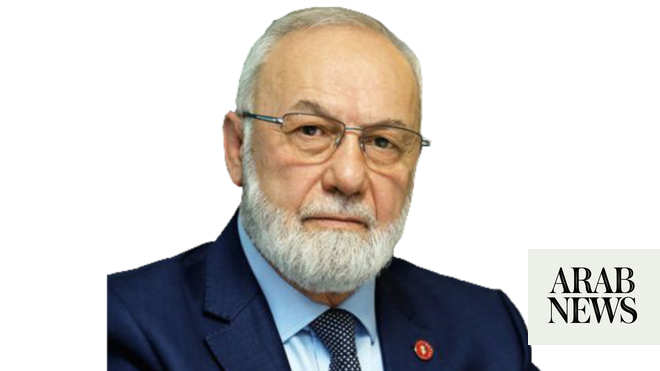How conflict and mass displacement in Sudan are having a devastating impact on civilians
DUBAI: Sudanese freelance photographer Faiz Abubakr has documented the crisis in his home country, which began in April 2023 when violence erupted between rival military factions.
Since then, the Sudanese armed forces, led by Sudan's de facto president, Abdel Fattah Al-Burhan, have been engaged in battle with the paramilitary Rapid Support Forces, under the command of Mohamed Hamdan Dagalo, commonly known as Hemedti.

In this combo photo, Sudanese army chief Abdel Fattah al-Burhan (inset left) attends a graduation ceremony in Gibet, near Port Sudan, on July 31, 2024, while the other photo shows paramilitary forces commander Mohamed Hamdan Dagalo addressing his followers at an undisclosed location on July 28, 2023. (AFP Photo)
Despite the immense danger, Abubakr felt compelled to take to the streets with his camera to document the catastrophe unfolding in his hometown of Khartoum and capture the impact of the generals' bitter rivalry on its besieged citizens.
“Many questions ran through my mind about the lives of these residents who were fleeing the scourge of war every day, whose homes and possessions were consumed by fire, and who were dying in tragic ways,” Abubakr told Arab News. “These questions were about how they spent their days under the roar of planes and explosions, which forced them to abandon their homes and be haunted by the curses of displacement.”
According to the UN, Sudan is now facing the world's largest internal displacement crisis, with millions of people forced to flee their homes, including Abubakr who initially sought refuge in Egypt with his family.

After a few months, he returned to Sudan to work for several news agencies until he was wounded, he said, by an RSF gunman. While he recovered, he and his family moved to Kassala, located in eastern Sudan, near the border with Eritrea.
Abubakr’s clients included AFP, Le Monde, and The New York Times. Before the conflict, he received the 2022 World Press Photo Award in the “Africa, Single” category. Now he’s just trying to survive.
“The situation is much worse than before,” Abubakr said. “Life is very difficult due to lack of food and livelihoods. There is a threat of famine in all parts of the country.

Even after being displaced, freelance photographer Faiz Abubakr continued to photograph the conflict unfolding around him in Sudan. (Instagram)
Even as a displaced person, Abubakr continued to photograph the conflict unfolding around him, particularly its impact on civilians forced from their homes.
“I try to document their stories, but it is very difficult to photograph them for security reasons,” he said. “I lost everything during the war, including most of my photography equipment. My psychological state is getting worse.”
INNUMBERS
• 10 million People displaced in Sudan, according to the UN.
• 25 million More than half of the population is in need of humanitarian aid.
Abubakr is not alone. The conflict has had a devastating impact on the health and well-being of Sudanese civilians, according to a new report by Doctors Without Borders, whose staff work in eight states across Sudan.
The population has faced “horrific levels of violence, succumbing to widespread fighting and surviving repeated attacks, abuse and exploitation” by the warring parties, the report says.
“The violence in Sudan shows no signs of abating,” Vickie Hawkins, MSF UK’s executive director, wrote in the report. “In fact, it is escalating at a rate that outstrips our ability to process, document and respond to the daily events our teams and patients experience in Sudan.”
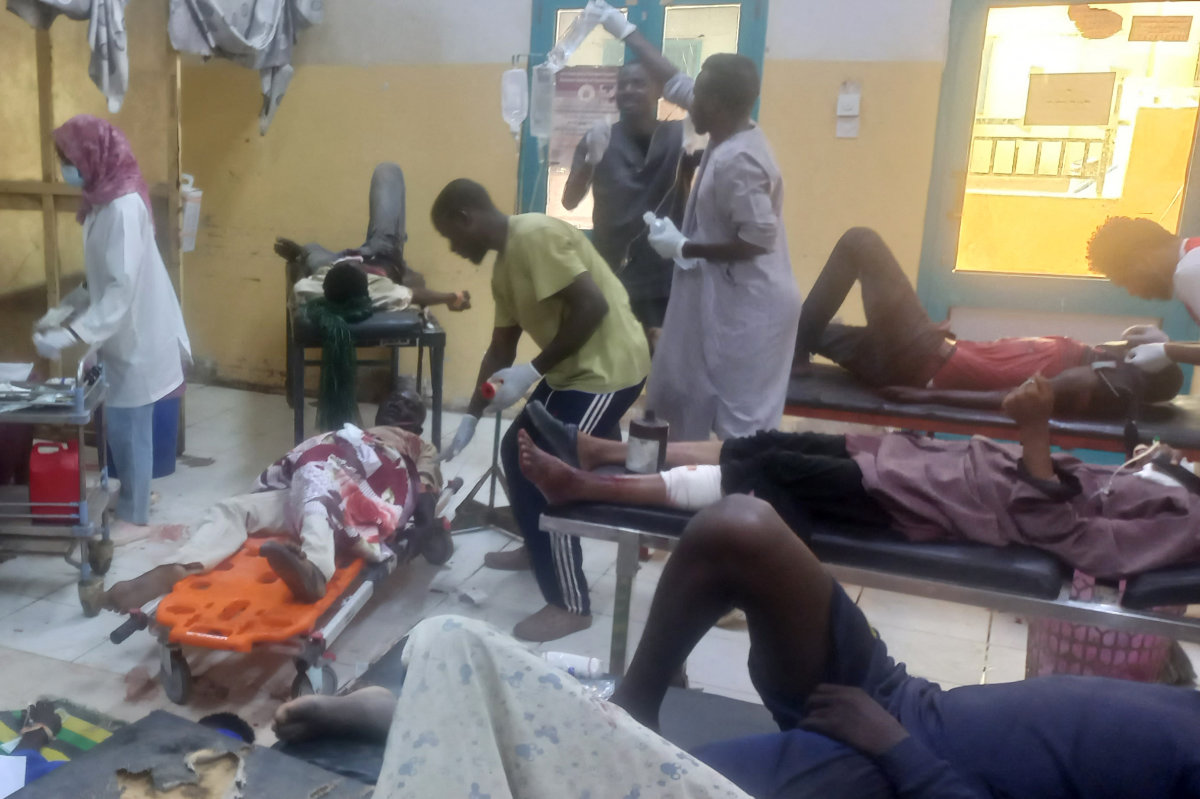
People receive treatment at Bashair Hospital in Sudan's capital during the first weeks of last year's war. Many hospitals in Khartoum and other states have closed due to attacks on health workers. (AFP/Archive)
The report is based on medical and operational data collected by MSF from 15 April 2023 to 15 May this year. It highlights the patterns of violence and abuse observed by MSF teams and the devastating impact of fighting on public health.
In the report, an anonymous health worker at Al-Nao hospital in Omdurman, west of Khartoum, described the aftermath of recent bombings in a residential area of the city.
“About 20 people arrived and died immediately after. Some arrived already dead,” the health worker said. “Most of them arrived with their hands or legs already dangling, already amputated. Some with just a small piece of skin holding two limbs together.
“A patient arrived with an amputated leg, his assistant followed him, carrying the missing limb in his hand.”
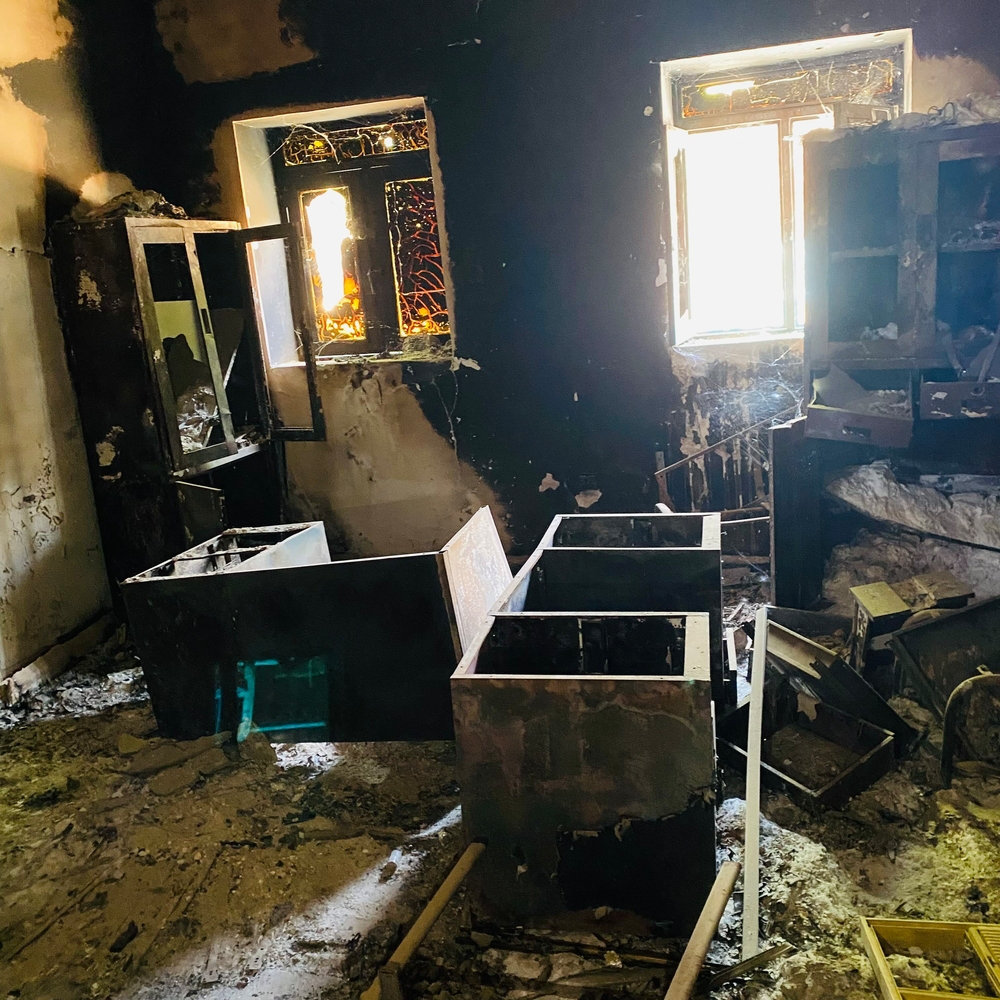
Destruction following the attack and looting of an MSF-supported health facility in Sudan. (MSF)
According to MSF, Al-Nao hospital treated 6,776 patients for injuries caused by armed violence between 15 August 2023 and 30 April this year, an average of 26 people per day.
“After 15 months of conflict, the warring parties are demonstrating a total disregard for civilian lives,” Kyle McNally, a project coordinator for MSF who was recently stationed in the town of Nyala in southwest Sudan, told Arab News.
“These are the people they claim to represent and fight for. Instead, this is really a war against the people of Sudan in the way they are conducting their hostilities. We see very serious violations of the protection of civilians and attacks on civilians and civilian infrastructure.
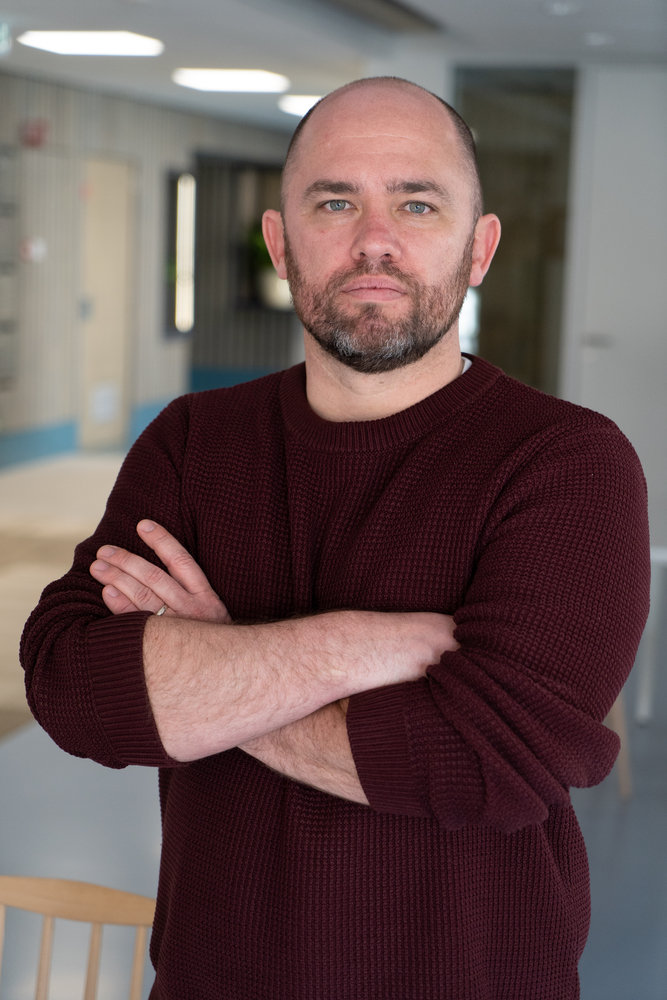
Kyle McNally, project coordinator for Doctors Without Borders. (Photo MSF)
“Hospitals and medical personnel have not been spared. We are seeing numerous attacks on health facilities. The hospital system and the health system have been completely decimated by the fighting.”
According to the United Nations, Sudan is facing a deepening food crisis, with an estimated 25 million people, including more than 14 million children, 3 million of whom are under the age of five, suffering from acute malnutrition and in urgent need of humanitarian assistance.
According to data recently published by the United Nations International Organization for Migration, at least 10 million people have been forced to flee their homes to escape violence.

“The conflict in Sudan has become one of the largest displacement crises in the world,” Alyona Synenko, spokesperson for the African region of the International Committee of the Red Cross, told Arab News from Nairobi.
“We are talking about a quarter of the country's population who have fled their homes. People have lost their homes and access to the essentials of survival.”
In particular, the displacement of farmers has led to the collapse of Sudan's agricultural sector, exacerbating food insecurity. “Food production has suffered immensely and we are seeing a worsening of the food crisis,” Synenko said.
“We have hundreds of people calling us, desperate, because they don’t know what happened to their loved ones. We have more and more families separated who have lost all means of contact.”
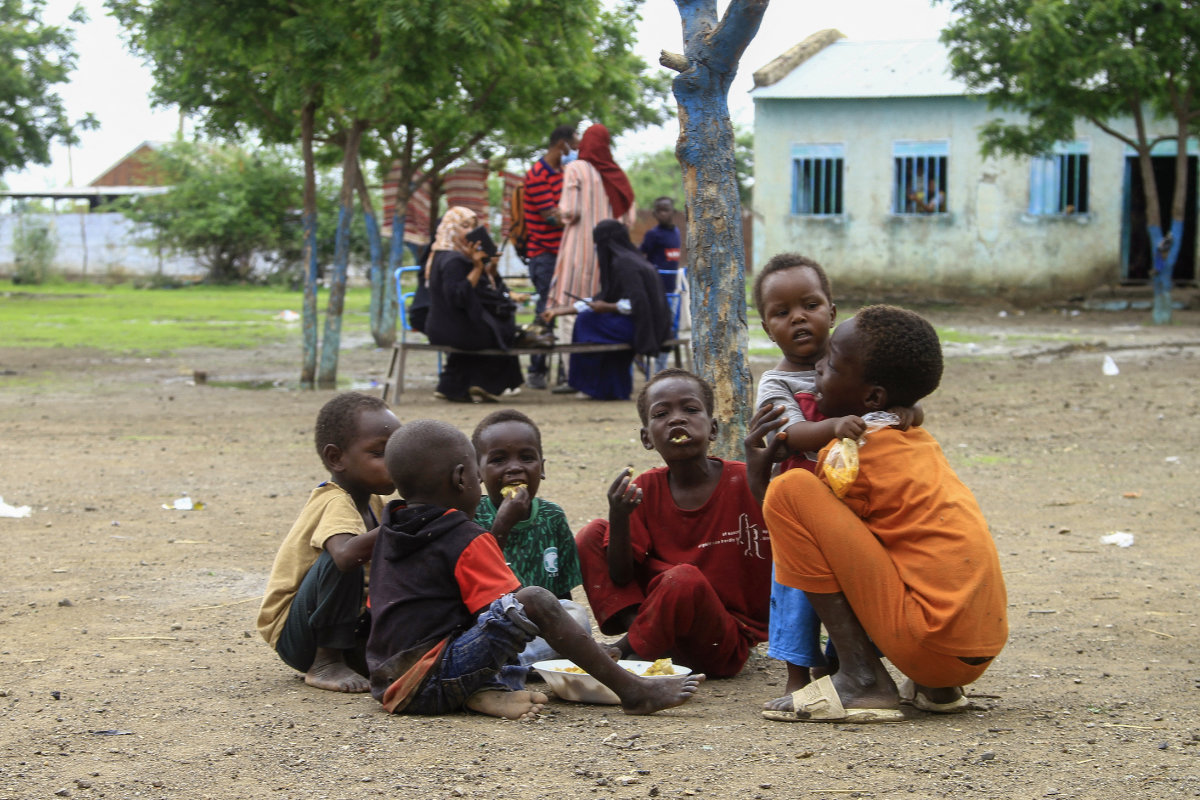
Displaced children share a meal provided by a charity initiative at a refugee camp in the town of Gedaref in war-torn eastern Sudan, July 13, 2024. (AFP)
In the first half of 2024, the ICRC worked in partnership with the Sudanese Red Crescent to provide emergency assistance and essential services. However, its efforts were frustrated by the security situation, administrative challenges and difficulties in accessing communities.
Nowhere is this more evident than in Sudan’s troubled Darfur region, where allegations of ethnic cleansing and attacks on hospitals have emerged.
“We have witnessed total devastation in the city of Nyala, which was once the second most populous city in Sudan,” said MSF’s McNally.
“The entire northern half of the city is almost completely destroyed. There is a complete lack of basic services everywhere. There has been virtually no international humanitarian response in this part of the country.
“You really see people in distress. There are the residents who are still there, and then there are also the camps for displaced people in the surrounding area with hundreds of thousands of people. You see a lot of people who are incredibly desperate and receiving very little assistance at the moment.”
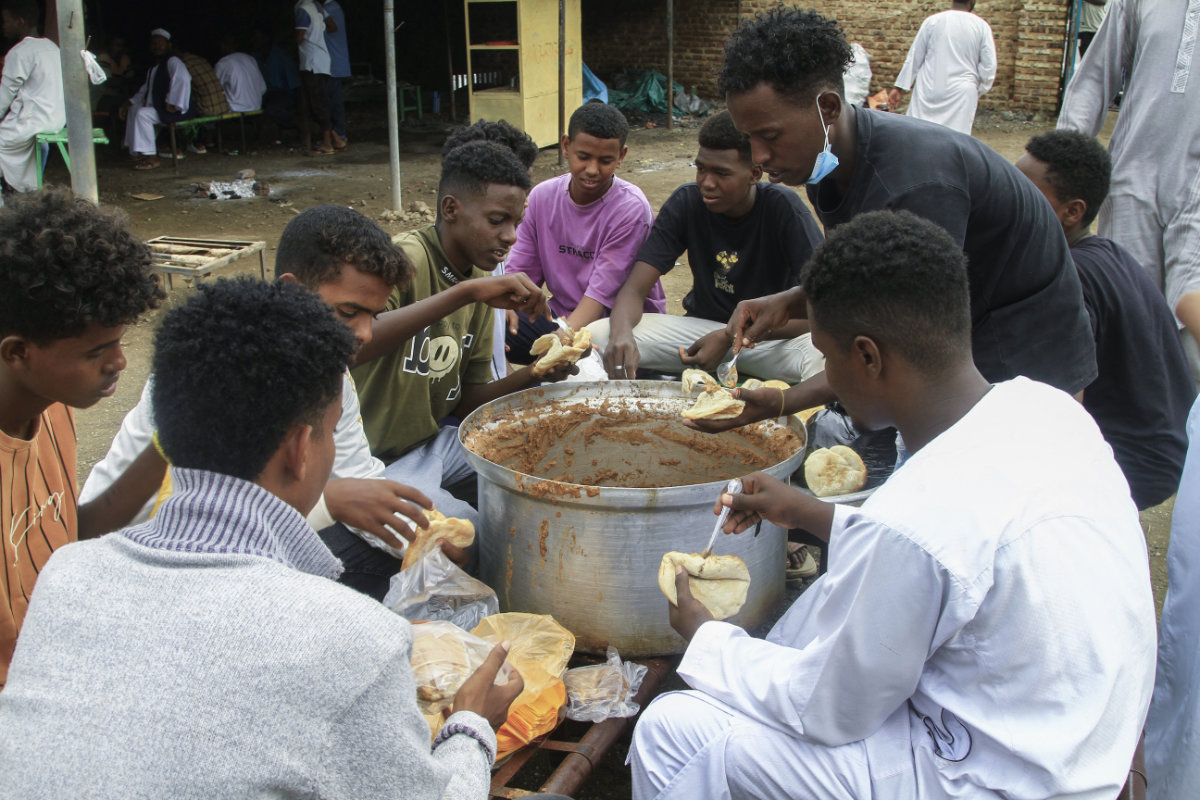
Volunteers from a charity organization deliver meals at a refugee camp in the town of Gedaref in war-torn eastern Sudan on July 13, 2024. (AFP)
According to Abubakr, Sudanese civilians are suffering particularly in areas controlled by the Rapid Support Forces. The paramilitary group now controls most of Khartoum, Al-Jazirah, Kordofan and the vast western region of Darfur.
Of particular concern are reports of sexual and gender-based violence emerging across the country, but especially in Darfur.
An MSF survey of 135 survivors of sexual violence treated in refugee camps in Chad by MSF teams between July and December 2023 found that 90 percent had been abused by an armed assailant. 50 percent had been abused in their own home, and 40 percent had been raped by multiple assailants.
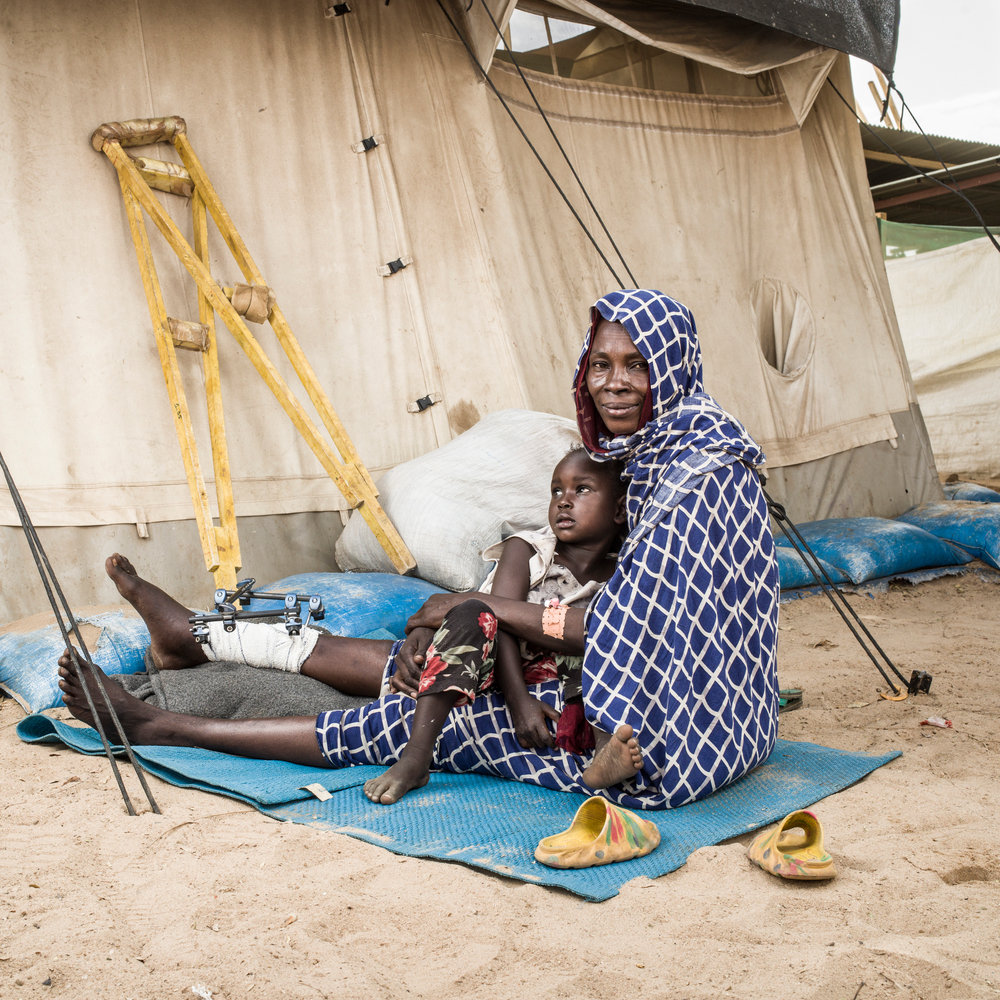
The conflict has left tens of thousands of people disabled. (Corentin Fohlen/Divergence
Abubakr recalls feeling haunted by the sight of his neighbors in Khartoum abandoning their homes, leaving behind places and possessions that were integral to their identity, not knowing if they would ever return. He never believed that he, too, would flee his hometown.
Now only the memories and photographs remain of a home that he hopes to reclaim one day.
“I see that a person does not inhabit the place as much as the place inhabits him,” Abubakr said. “The images and scenes of my home have never left my mind. I long to return there again.”

